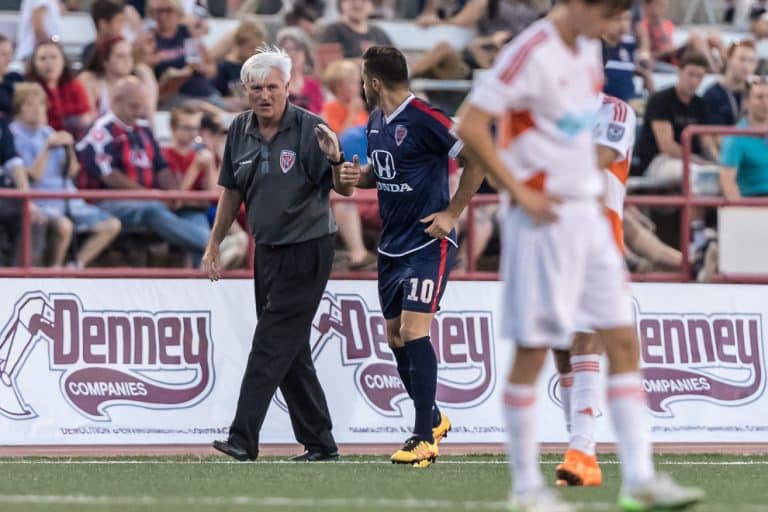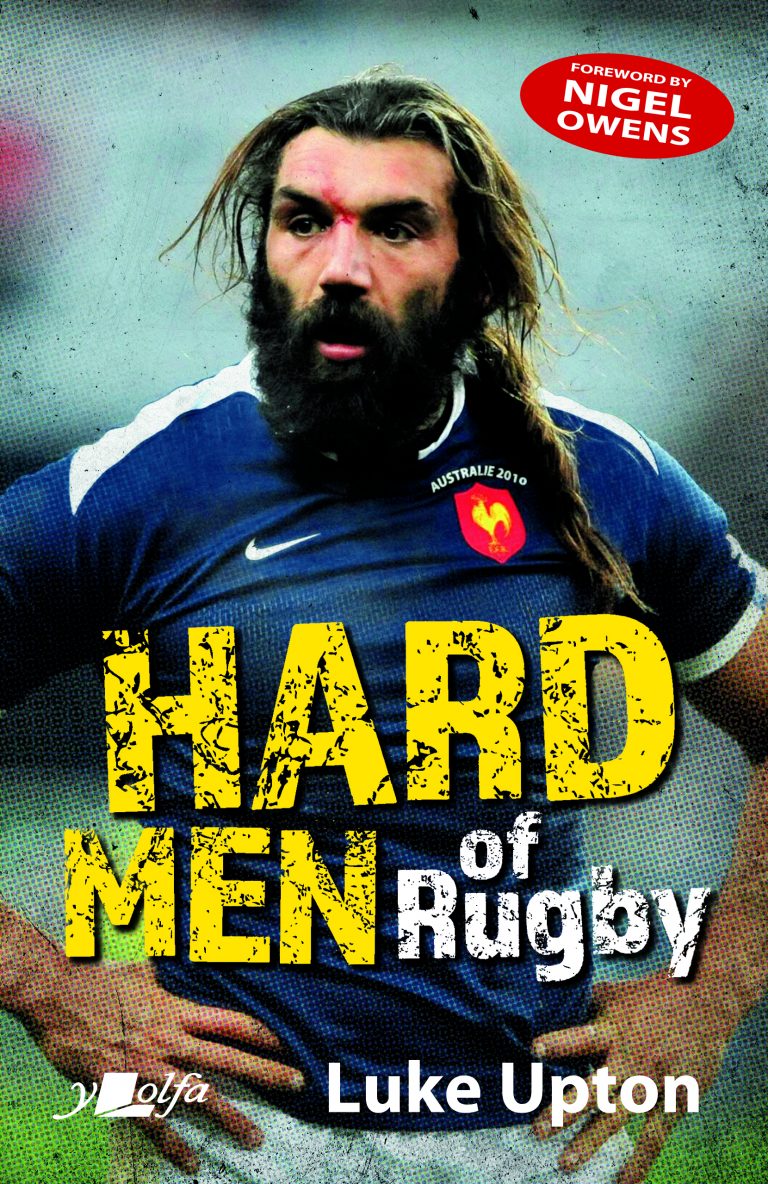
When you talk about FC Barcelona, you always talk about great teams, players, thinkers, and coaching minds. But after reading The Barcelona Inheritance: The Evolution of Winning Soccer Tactics from Cruyff to Guardiola by Jonathan Wilson, you should add great writers to that list.
Wilson is arguably the world’s top football writer, having already composed several incredibly successful books and contributed to the Guardian, Sports Illustrated, World Soccer, and The Blizzard. Becoming a published author was a dream of Wilson’s.
“I think I always wanted to write a book. As a kid, I always read loads. I always sort of dreamed of writing books and from being very young I would borrow my dad’s typewriter and you know start typing books but got maybe 100, 150 words before I gave up. That idea was always there and then I sort of stumbled in football journalism thank goodness, having failed to be an academic. I was very fortunate I got made redundant at just the right time in the sort of first wave as the Internet boom died away and I was always looking for freelance work for things to do and I met my agent, who had been the manager of the sports bookshelf. He just left that sports bookshelf as he saw the writing on the wall and I was actually his first client and he’s now a successful agent. I was just very lucky I got on the ground floor and he was very helpful in terms of finding a publisher and and talking through ideas on what would work and so I remember very clearly when I got the deal to the first book which was the day of the Champions League Final in 2004 and I was outside the stadium when I got the phone call saying great news, we’ve got the deal and that that was Behind the Curtain, which came out in 2006.”
Wilson’s knowledge of the beautiful game is world-class and completely unmatched as we quickly learned from our conversations.
FC Barcelona, quite easily the world’s top football brand, was front and center in Wilson’s latest book, but they weren’t always world beaters or even trendsetters.
“Well I think the modern Barcelona it’s quite hard for us now to remember or even be aware of the club that they used to be,” Wilson said. “When Cruyff goes to Barcelona in ’88, they are a very big club but not a successful club in any way. They won the league once in 14 years and so part of his legacy is the fact that he wins the four league cups in a row, he wins the European Cup for the first time, which I think psychologically was hugely important in terms of taking Barcelona on to an elite level. I mean off the back of that you have this huge boom in terms of football popularity in terms of marketing with the Champions League and they were ideally placed to capitalize on that.”
And they capitalized on the situation in a big way, changing the game for the better.
“I think the idea of them being opposed to the incredibly money rich way of doing things at Real Madrid,” Wilson added. “I think that’s very appealing. Real Madrid go out and buy big stars. it’s all about the Galaticos and that was true in the early 2000s and certainly true in the ’50s. That’s part of the glamour. It’s part of their their image. Whereas Barcelona was able to set themselves up against that and this whole philosophy of being about the team. It’s about the interaction of the players rather than the players themselves and the fact that they had an incredibly productive academy and this beautiful coincidence of Pep Guardiola as a coach going there in 2008.”
There have been a number of dream teams at Barcelona, but Wilson says the one of recent memory is special for a lot of reasons.
“You have Xavi, Iniesta, Busquets, Victor Valdez, Pique, Messi, Pedro all there together, people who grown up playing this very idiosyncratic style, a very attractive style and they’re all there with exactly the coach who can get the best out of them and then of course they produce the you know the two great seasons of winning the Champions League so I think in terms of you what they are as a brand I think it is that idea of teamwork and philosophy and beauty as opposed to just throwing money at a problem.”
While there is a lot of back and forth regarding FCB’s greatest player, Wilson says there should be no argument about which manager had the greatest influence.
“It’s Johan Cruyff without any question. He made the modern Barcelona. When he arrives in what 73-74 he elevates them and they win the league for the first time in roughly a decade. The combination of him and Rinus Michel empowers the Dutch philosophy. They really make it fire and leads to La Masia being structured on Dutch lines, replicating the Ajax model. Then he goes back and he reaps the benefits and then, even after he leaves the club in in pretty acrimonious circumstances in ‘96, he never takes another job. I think he’s only 49 at the time when he when he’s kicked out of Barcelona and he just hangs around. He’s just there in the background and is almost the conscience of the club.”
That influence changed the careers of players and coaches alike.
“He had been a huge influence even though Van Gaal wouldn’t admit it, but his ideas clearly had influence on Van Gaal and direct influence on Guardiola,” Wilson continued. “Then you have people like like Frank Rijkaard, who as a player didn’t really get on with Cruyff the manager, and yet could see the effectiveness and the attraction of the style of football he liked to play. In Frank Rijkaard’s appointment with which you know which works famously well and almost immediately they win the Champions League for only the second time. Yet look at his career before he goes to Barcelona. He at best had a par performance as manager of the Netherlands getting to the semifinal in 2000 on home soil. He’s taken Sparta Rotterdam to relegation for the first time in their history and you know he’s on his way to manage Dutch Antilles when Barcelona give him a call but the reason they want him is that they can trust him to play football in the right way. They can trust him to follow the Cruyffian or post-Cruyffian philosophy and that is more important than a cabinet full of medals and silverware that he won previously. The whole shape of Barcelona is Cruyff and that clearly had a huge influence on everybody else. In the post-World War II era Cruyff stands above everyone else as the person with the greatest influence on world football.”
FC Barcelona’s global reputation has the club in the midst of a worldwide controversy over official La Liga games being played outside of Spain. Wilson suggests that it is a disastrous idea in every respect.
“So it’s disastrous from the point of view of your league having very simple structure and it’s very equitable and very fair. Every team played every other team twice: once home, once away. When you start taking games to places aren’t home or away but a neutral, you’ve imbalanced that. So just in terms of integrity competition, it’s a bad idea. Realistically if one game a season is moved then the game that will be moved will be a Real Madrid or Barcelona game and it would be one of that away games against one of the smaller teams. The game we’ve been talking about is the Girona game. Now if you’ve been a Girona fan for 30 years, and you’ve just got in La Liga, just got to the top flight. What game are you really looking forward to? You really want to see Barcelona, and in this case, it’s another Catalan club, right, you want to see them play in your home, and that’s kind of your reward for the 30 years you’ve put in, and maybe, maybe you see your team beat them. And that’s the game, if you’re a Girona fan, you’re not going to win La Liga or the Champions League or a tiny chance of winning the Copa del Rey. That’s the kind of thing you will remember that forever, you remember that time when Messi came here and we beat them two-nil and that’s what keeps fans going. So from that point of view, I think it’s a terrible idea.”
Wilson pointed out that it could also be bad for domestic leagues in those overseas markets.
“I think from the point of view of the development of MLS, it’s a terrible idea. Once you become the host to other team’s leagues then what’s the point of your league? What are you? If your games aren’t strong enough to draw in fans, then what’s the point? So I think from that point of view it’s an awful idea.”
Yet the billions surrounding global football may turn these ideas into a reality.
“However, I think it is the way football is going and increasingly, you know we’ve seen this week the discussions between FIFA and UEFA over the Club World Cup, I think we are moving to a situation where we have a global league,” Wilson concluded. “There’s obviously huge problems with arranging that because all the wealthiest clubs at the moment are European. So how do you involve teams from the U.S. or Japan or Indonesia or South America? All of that is incredibly difficult to work out and doesn’t really work on any kind of organic level. So once teams have become these super clubs, these entities draw a fan base from all around the globe. Once they generate vastly more revenue from from TV broadcast deals rather than the match-going fan then I get their duty is to those fans instead of those who have been going for 30, 40 years paying on the gate and going in. And for me, that’s quite a sad thing. I think a football club is part of the part of a town, part of the city, part of the region. And he’s got community responsibilities. I think that’s what makes sports more important than just men kicking the ball about, but that ship has sailed. And I guess if you are looking at the global markets then you take the games all around the world.”
And when that happens, FC Barcelona will always be the hottest ticket in town, much like any book from Jonathan Wilson. The Barcelona Inheritance is out this week and it’s quite clear that Nation Books has another great offering, one that will be remembered as the top football title of 2018. It’s that good.






